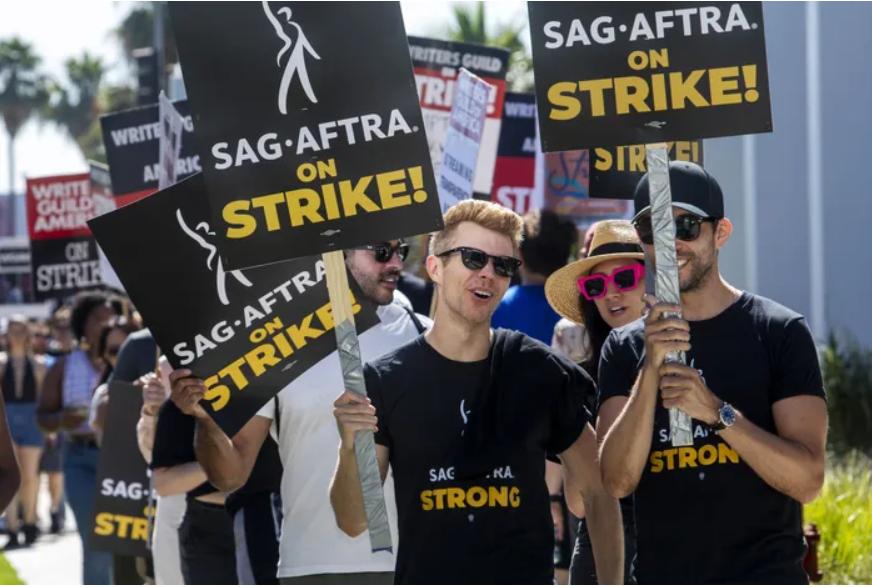Workers across various industries are increasingly asserting their demands for higher wages and improved working conditions, with some being willing to engage in strikes to achieve their goals. The Covid-19 pandemic’s impact on job security and working conditions, coupled with rising company profits, inflation, a surge in labor union approval, and growing pay disparities between workers and executives, has emboldened employees to push for substantial improvements. This push for change has led to notable victories for workers, such as record labor agreements secured by UPS’ workers’ union after strike threats, and other strikes that have pressed for better terms, such as the Spirit AeroSystems deal reached after a brief work stoppage.
The momentum behind worker actions has been fueled by notable labor organizing efforts that predate the pandemic but have gained intensity in its wake, affecting companies ranging from Amazon and Starbucks to airlines and automakers. The year 2023 has seen over 320,000 workers involved in more than 230 strikes, surpassing the roughly 224,000 workers participating in around 420 strikes in 2022. The support for labor unions among Americans has also surged, with a Gallup report indicating that 71% approved of labor unions in 2022, the highest figure since 1965.
While larger-scale strikes involving 1,000 or more workers have been relatively limited, there is an ongoing trend of heightened organizing and worker support for labor unions. The United Auto Workers’ ongoing contract negotiations for nearly 150,000 workers with General Motors, Ford Motor, and Stellantis exemplify the continued drive for improved working conditions. Many recent strikes have yielded significant gains for workers, including double-digit wage increases, pension improvements, and restoration of cost-of-living adjustments, like those achieved by the UAW after strikes against Deere and CNH Industrial.
The scope of the worker demands extends beyond higher pay; workers are seeking an enhancement in their overall quality of life, a sentiment amplified by pandemic-related working conditions. This push for change spans industries, from Hollywood performers and writers pushing for better wages tied to streaming success to airline employees advocating for improved schedules and working conditions. The increased leverage that workers have gained due to labor shortages and public support for their causes has led to impactful victories and changes in multiple sectors.
(Source: Michael Wayland | Leslie Josephs | Sarah Whitten | CNBC)









